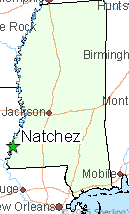
Marshall
Karen Marshall, Vermont’s appointed “broadband czar” and head of ConnectVT has accepted a lucrative job offer from one of the broadband providers she formerly oversaw.
Marshall’s trip through the revolving door from public servant to the private sector she helped regulate will land her as the new president of VTel Data Network.
Raising eyebrows across the state is the fact her new employer received $116 million in broadband stimulus grants in 2011 to expand service in rural Vermont. Less than two weeks ago, Marshall was praising VTel for another $5 million state grant from the state’s telecommunications authority to expand rural cell service in the state. VTel is the largest recipient of taxpayer-financed grant funding in Vermont.
VTel executives said Marshall would be a perfect fit for the company that owns a fiber network in the state with connections to New York, Montreal, and Boston.
VTDigger called Marshall, a former Comcast employee, a one-woman enforcer for the current administration’s broadband goals:
Her job has been to ensure that state and federal agencies, private companies and Vermont municipalities work together to meet the governor’s 2013 deadline.
The VTel project is key to that effort. No other company has received as much federal funding. ECFiber, a fiber-optic company, Burlington Telecomm and FairPoint are also expanding broadband in the state.
ConnectVT is widely viewed as Shumlin’s alternative to the Vermont Telecommunications Authority, which is dominated by former Gov. Jim Douglas appointees. After four years of state funding, the authority failed to make much progress on broadband expansion, in part because of corporate disinterest in investing in expensive rural broadband development. It’s only been in the last few years that private companies were awarded enough federal funding to make extending broadband access to very rural parts of the state financially viable.


 Subscribe
Subscribe The nation’s largest broadband stimulus grant recipient has turned a $126.3 million taxpayer funded broadband expansion program into an “orchestrated train wreck,”
The nation’s largest broadband stimulus grant recipient has turned a $126.3 million taxpayer funded broadband expansion program into an “orchestrated train wreck,” 


 Cable subscribers in Natchez, Miss. are scratching their heads wondering why AT&T will neither confirm nor deny whether its fiber to the neighborhood U-verse service is coming to a neighborhood near them.
Cable subscribers in Natchez, Miss. are scratching their heads wondering why AT&T will neither confirm nor deny whether its fiber to the neighborhood U-verse service is coming to a neighborhood near them.
 Time Warner Cable is expanding its footprint in the capital region of New York with the acquisition of independent Princetown Cable Company, which serves around 600 subscribers in Princetown, Duanesburg and Rotterdam in Schenectady County.
Time Warner Cable is expanding its footprint in the capital region of New York with the acquisition of independent Princetown Cable Company, which serves around 600 subscribers in Princetown, Duanesburg and Rotterdam in Schenectady County.